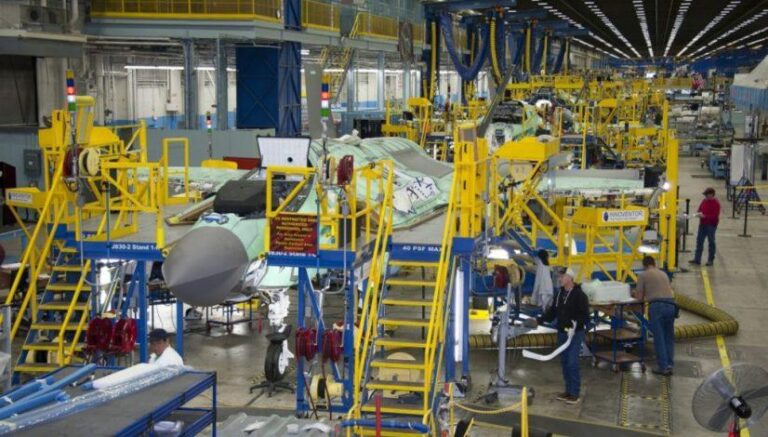In a recent development highlighting growing international collaboration, Egypt’s Military Production Minister engaged in high-level discussions with Japanese counterparts to explore opportunities for cooperation in key manufacturing sectors. The talks, aimed at strengthening industrial ties and enhancing technological exchange, underscore Egypt’s strategic initiative to bolster its defense and civilian manufacturing capabilities through global partnerships. This move is seen as a significant step toward advancing the country’s industrial base while fostering closer economic relations with Japan.
Military Production Minister Emphasizes Strategic Partnership with Japan in Advanced Manufacturing
The Military Production Minister underlined the importance of enhancing collaboration with Japan, aiming to leverage cutting-edge technology and expertise in advanced manufacturing sectors. Emphasizing mutual benefits, the minister highlighted potential joint ventures focusing on precision engineering, robotics integration, and smart materials development. This strategic partnership is poised to not only accelerate the modernization of military production capabilities but also to boost economic ties through innovation-driven cooperation.
Detailed discussions covered key areas for cooperation, illustrated in the accompanying breakdown:
| Sector | Focus Area | Expected Outcome |
|---|---|---|
| Electronics | Microchip fabrication | Enhanced component reliability |
| Materials Science | High-strength composites | Improved durability |
| Automation | Robotics & AI | Increased production efficiency |
- Technology sharing agreements to promote innovation exchange
- Joint development programs targeting sustainable manufacturing
- Skills training initiatives to enhance workforce capabilities
Focus on Technology Transfer and Innovation to Boost Defense Capabilities
The collaboration aims to drive a significant upgrade in defense manufacturing by channeling advanced technology knowledge directly into domestic production lines. Emphasizing the importance of technology transfer, the initiative seeks to enable local industries to adopt cutting-edge innovations from Japan, thereby reducing dependence on imported solutions and enhancing self-reliance. Key focal points include the integration of smart manufacturing processes, robotics, and materials science that are essential for developing next-generation military equipment. This strategic transfer will empower engineers and technicians within the defense sector to innovate independently while maintaining high standards of quality and efficiency.
To ensure a streamlined implementation, the partnership will prioritize:
- Joint R&D projects focused on emerging defense technologies
- Skill development programs to train personnel on new systems
- Seamless integration of manufacturing protocols and quality assurance
The collaboration also plans to establish a centralized innovation hub that will serve as a melting pot for ideas, prototypes, and rapid testing. This initiative underscores a commitment to transforming defense capabilities through shared knowledge and innovative practices, ultimately bolstering national security and technological leadership in the region.
| Focus Area | Objective | Expected Outcome |
|---|---|---|
| Technology Transfer | Adopt Japanese advanced tech | Enhanced local manufacturing |
| Innovation Hub | Foster joint R&D efforts | Rapid prototype development |
| Training Programs | Skill enhancement for engineers | Improved operational capabilities |
Recommendations for Strengthening Joint Ventures and Expanding Industrial Collaboration
The advancement of joint ventures between the military production sector and Japanese manufacturers hinges on fostering transparent communication channels and aligning strategic objectives. Emphasizing technology transfer agreements and shared R&D initiatives will not only boost innovation but also ensure sustainable growth in high-precision manufacturing capabilities. Stakeholders recommend establishing regular bilateral workshops and creating cross-functional teams to tackle market challenges collaboratively, reinforcing mutual trust and operational synergy.
Furthermore, expanding industrial collaboration requires diversified investment approaches that support medium and small enterprises as vital contributors within the supply chain. Introducing incentive programs and leveraging government-backed financing can stimulate participation from emerging players, broadening the industrial base. Key areas identified for growth include:
- Advanced materials development for durable and lightweight components
- Automation and smart manufacturing technologies to enhance productivity
- Joint certification standards to optimize export potential
| Focus Area | Recommended Action | Expected Outcome |
|---|---|---|
| R&D Collaboration | Joint innovation hubs | Accelerated product development |
| Supply Chain Integration | Shared procurement platforms | Cost reduction and efficiency |
| Regulatory Alignment | Unified certification processes | Expanded export markets |
The Way Forward
As discussions between the Military Production Ministry and Japanese counterparts progress, both nations signal a commitment to deepening their strategic partnership in critical manufacturing sectors. This collaboration not only promises to enhance technological capabilities and industrial output but also reflects a broader effort to strengthen bilateral ties in an increasingly interconnected global economy. Further developments are anticipated as officials continue to explore avenues for mutual growth and innovation.




